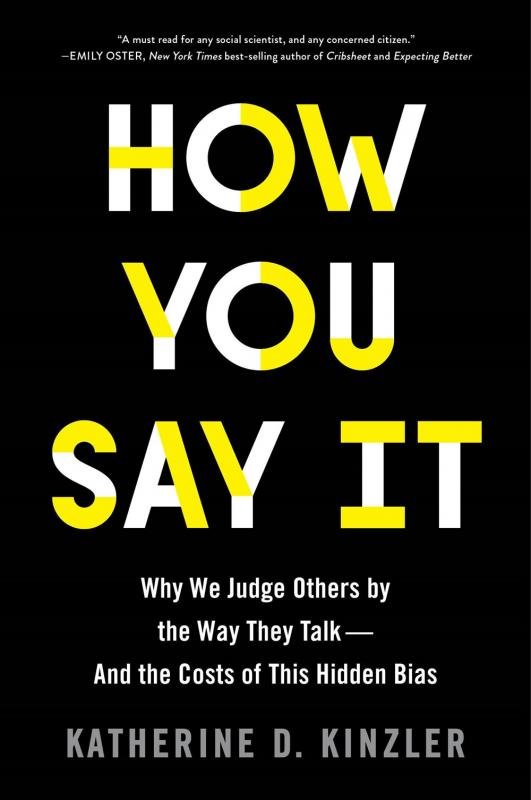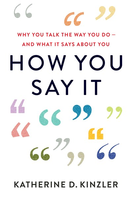
How You Say It: Why We Judge Others by the Way They Talk—and the Costs of This Hidden Bias
by Katherine D. Kinzler Author
We gravitate toward people like us; it’s human nature. Race, class, and gender shape our social identities, and thus who we perceive as “like us” or “not like us.” But one overlooked factor can be even more powerful: the way we speak. As the pioneering psychologist Katherine Kinzler reveals, the way we talk is central to our social identity because our speech largely reflects the voices we heard as children. We can change how we speak to some extent, whether by “code-switching” between dialects or by learning a new language; over time, our speech even changes to reflect our evolving social identity and aspirations. Our linguistic differences present challenges, Kinzler shows, but they also can be a force for good. Humans can benefit from being exposed to multiple languages—a paradox that should inspire us to master this ancient source of tribalism and rethink the role that speech plays in our society.
(This book may contain a sharpie mark on the top or bottom edge and may show mild signs of shelfwear.)
You must log in to comment.







